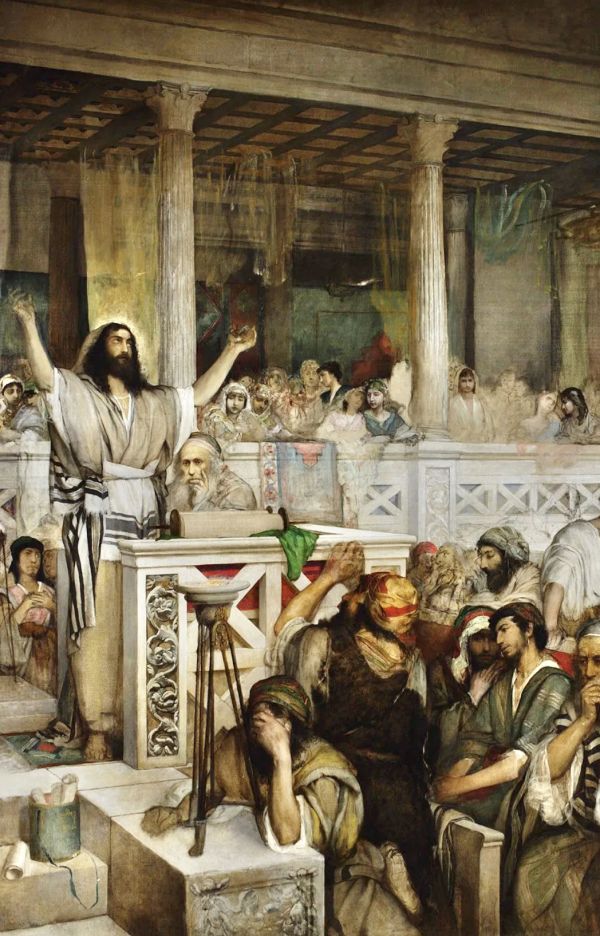In the Synagogue and from the precipice
(Lc 4:14-22)
In ancient Israel, the patriarchal family, clan and community were the basis of social coexistence.
They ensured the transmission of the nation identity and provided protection for the afflicted.
But at the time of Jesus, Galilee was subject to the segregation dictated by Herod's policies, and suffered from the oppression of official religiosity.
The political and economic situation forced people to retreat into material and individual problems or those of small family.
A situation that was leading the least protected sections of the population to collapse.
Instead, Jesus wants to return to the Father's Dream: the ineradicable one of Fraternity, the only seal to salvation history.
Thus, according to Lk the first time Jesus enters a synagogue he makes a mess.
He does not go to pray, but to Teach what the Grace of God is [the one not weakened by chicanery or false instructions] in the real existence of people.
He chose a passage that reflected the situation of his people, oppressed by the power of the rulers, who were making the weak suffer confusion and poverty.
But his First Reading disregards the liturgical calendar.
He then dares to preach in his own way and personalizes the passage from Isaiah, from which he allows himself to censor the verse announcing God's “vengeance”.
So neither does He proclaim the expected passage of the Law.
Moreover, for the Son of God, the Spirit is not revealed in the extraordinary phenomena of the cosmos, but in the Year of Grace [«a year acceptable to the Lord»: v.19].
Is it possible that the divine likeness could manifest itself in a man who is considerate towards the less fortunate, who disregards official customs, does not believe in retaliation, and displays forms of uncontrolled spontaneity?
It is a reminder to us.
Like the Master, instead of reasoning with induced thoughts and being sequestered by the heaviness of rejections and fears, in Him we begin to think with the empathic codes of our Calling, which breaks through.
The unrepeatable and wide-ranging Vision-Relation (v.18a) - without reduction - then becomes strategic, because it possesses within itself the appeal of the radical essence, and all the resources to solve the real problems.
To listen to the proclamation of the Gospels (v.18b) is to listen to the echo of oneself and the people considered insignificant: intimate and fraternal choice.
And to be in it without the dead leaves of one-sidedness - by wandering freely in that same Appeal; not neglecting precious parts of oneself, nor amputating eccentricities, or the intuition proper to the subaltern classes.
In this way, we remain in the instinct to be and do happy, without ever allowing ourselves to be imprisoned by the craving for security on the side: a stagnant quest.
The Kingdom in the Spirit (cf. vv.14.18) knows what we need. It has ceased to be a goal of mere future.
It is the surprise that Christ arouses in us through his Dream, around his proposal with an extra gear.
The Lord does not neglect us: He extinguishes accusatory brooding and creatively redesigns.
He gives birth again and motivates, recovers dispersions and reinforces the plot.
It is divine because it is personal and social, the new Energy, empowered to create the authentic man.
This is the platform that works the breakthrough.
[Weekday Liturgy, 10 January]












